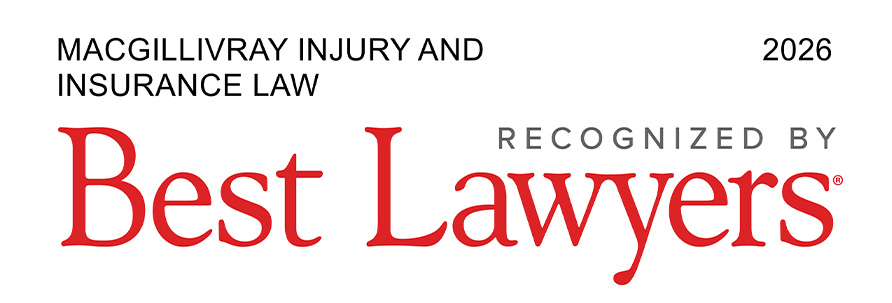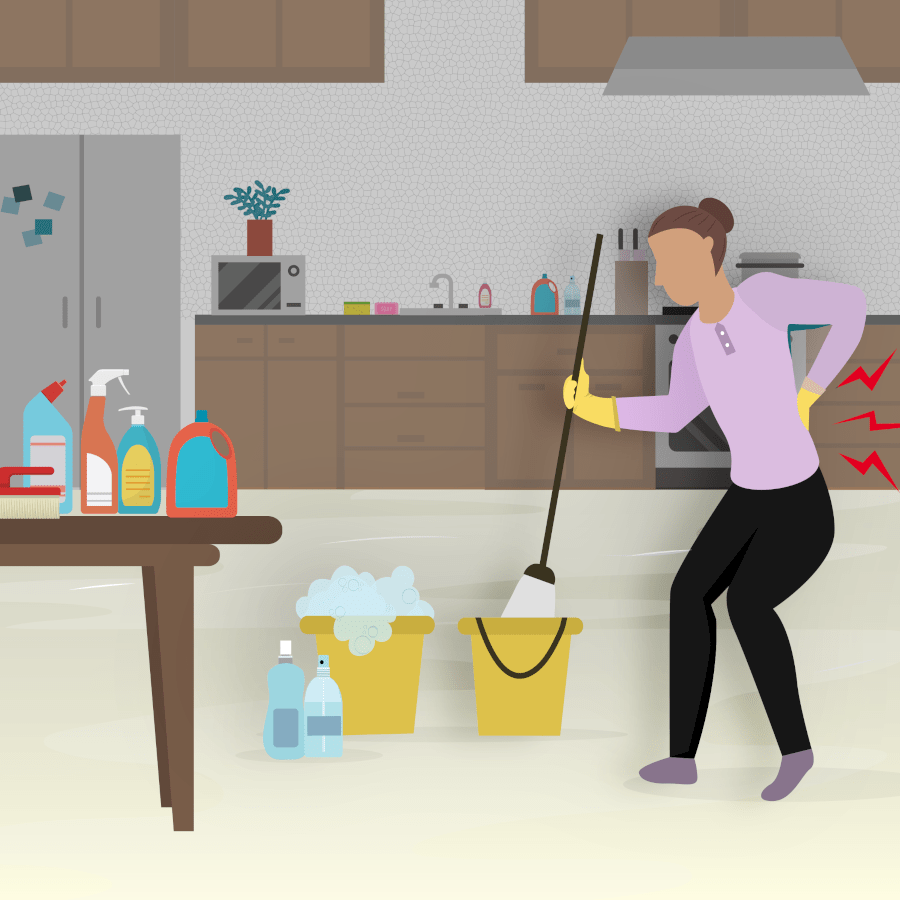



What are Section B benefits?
Section B benefits are benefits that form part of your insurance contract. When you’ve been injured in a car accident in New Brunswick, Section B insurance benefits will cover up to $50,000 for medical and rehabilitation expenses, such as physiotherapy, massage, chiropractic, and nursing care. Furthermore, if you’ve been injured in an accident and you’re unable to work due to your injuries, Section B provides coverage towards your lost wages, the smaller of 80% of your pre-injury gross income up to $250 per week. If you are the principal unpaid housekeeper in your home and your injuries prevent you from continuing in this role, Section B will provide $100 a week in housekeeping benefits, for up to 52 weeks. In the event of a death of a loved one, Section B also provides up to $2,500 in funeral expenses and death benefits up to $50,000.
| Benefit | Amount |
|---|---|
| Medical and Rehabilitation Expenses | Maximum of $50,000 or 4 years, whichever comes first |
| Loss of Income | 80% of gross income up to a maximum of $250/week |
| Funeral Expenses | Up to $2,500 |
| Death Benefits | Death Benefits Depends on deceased: Head of household = $50,000 Spouse of Head of Household = $25,000 Dependant = $5,000 |
| Principal Unpaid Housekeeping | $100/week for maximum of 52 weeks |
Section B benefits are paid to you by your own insurance provider, in contrast to Section A benefits, which are paid by the at-fault driver’s insurance to the injured person after an accident. However, if you are hit as a pedestrian, then the at-fault driver’s insurance provider will typically pay your no-fault benefits. A lawyer can help discern which insurer is responsible for payment of Section B benefits.
Who qualifies for Section B benefits in New Brunswick?
Section B coverage is mandatory in New Brunswick and is automatically included in all automobile insurance policies in the province. Section B benefits cover the motor vehicle insurance policyholder, as well as the driver of the insured vehicle, any passengers in the insured vehicle, pedestrians who are hit by the insured vehicle, and any dependants or family members who were occupants of other vehicles involved in the accident. A lawyer can provide advice on coverage issues.
How do I open a Section B claim?
To open a Section B claim after you’ve been in a car accident, you will need to contact your insurance company to fill out a claim form. They will provide you with forms for your family doctor, treatment providers and your employer to complete. The insurance company does not always automatically send these documents to you in the mail, so it is your responsibility to contact them to open a Section B file.
There are deadline requirements to notify your insurer within 30 days of the accident that the accident occurred, and filing a proof of claim within 90 days.
Are there time restrictions that apply to claims under Section B?
Yes, time restrictions are crucial for Section B claim, and you must respect the 30 day notice limit and 90 day period for filing the claim form, in addition to the limitation period for filing your action with the court.
In LeBlanc v Zurich Insurance Co., [2000] NBJ No 441, the court had to decide whether Mr. LeBlanc’s claim was barred by the statute of limitations. The accident happened in September 1991, and Mr. LeBlanc initially claimed benefits that ended in 1992. He began legal action for payment of his Section B benefits in August 1994, but dropped it to pursue another action, then started again in July 1998. Zurich argued that the claim was statute-barred.
The court determined that Zurich’s refusal to pay benefits in 1994 would typically start the limitation period. However, for accident benefits, the claimant’s rights continue to accrue with every missed payment. Therefore, Mr. LeBlanc’s action was not completely barred, but limited. He could only claim benefits for the period from one year before he started his action, or any benefits after July 1997.
In light of the above decision, it is important to keep track of the dates of important events (e.g., the date of the accident, the date you first communicate with your section B insurer, etc.), and to let your lawyer know of any interactions with your section B insurer, so that they can follow any applicable time restrictions in pursuing your claim.
Can I sue my insurance company for cutting off or denying my Section B benefits?
Yes, you can sue your insurer for wrongfully terminating or denying your Section B benefits. While insurers are legally obliged to provide Section B insurance benefits, some insurers will terminate these benefits in circumstances where a court might not agree it is appropriate to do so. If your insurer denies paying your Section B benefits or wrongfully terminates your weekly loss of income benefits, you may be entitled to start an action against your Section B insurer to recover these amounts.
Can my insurer pay my Section B benefits in a lump sum?
Yes, sometimes an insurer will pay a lump sum to pay out your medical expenses or weekly lost wages payments. However, your insurer is not obligated to do this. If there is a dispute about your entitlement and you sue for lost wages payments, often those cases will result in a lump sum payment. Also, if your insurer is convinced that you are likely disabled and will not return to work, they may make an offer to pay a lump sum to you. This is something you should review with a lawyer before coming to an agreement.
Section B Medical Treatment Expenses
What are Section B Medical Treatment Benefits?
Section B Medical Treatment Benefits in New Brunswick provide up to $50,000 coverage for medical and rehabilitation expenses resulting from car accident injuries. These benefits encompass three main categories:
- Necessary Services: Including medical, surgical, dental, chiropractic, hospital, professional nursing, and ambulance services.
- Insured Services: As defined under relevant insurance acts, such as hospital services.
- Additional Essential Services: Other services and supplies agreed upon by the insured’s physician and the insurer’s medical advisor as essential for treatment, retraining, or rehabilitation.
Covered expenses can range from medical treatments, prescription medications, outpatient care, and necessary medical equipment, to mileage for treatments and expenses related to retraining for new employment. This also includes paramedical treatments like physiotherapy and massage therapy (see Axa Insurance v. Rolfe, 2004 NBCA 14). Even reasonable costs for food and lodging may be covered, as confirmed in MacKay v. Rovers, 1987 CanLII 130 (NSCA).
However, requests for reimbursement must be reasonable. An insurer might refuse to pay for items unrelated to the accident or considered unnecessary for recovery, as illustrated in Veno v. United General Insurance Corporation, 2008 NBCA 39.
What is the time limit for Section B medical coverage?
Section B medical and rehabilitation coverage in New Brunswick extends to “all reasonable expenses incurred within four years of the date of the accident”. This means that courts have the discretion of extending the time limit of the coverage where the nature and cost of ongoing care is determined within the four-year period. For example, if a physician determined that a specific treatment was required within the four-year period, then coverage for the treatment would extend as long as necessary past the four-year mark.
An example of this interpretation can be seen in the case of Chestnut v. State Farm Mutual Automobile Insurance Co., 2005 NBQB 158, where treatments obtained after the four-year mark were still covered under the Section B policy as they were “incurred” within the four years following the accident. Ms. Chestnut was injured in a motor vehicle accident in August 1999. She was prescribed massage therapy in March 2004. However, massage therapy had been recommended as a course of treatment multiple times within the four-year limitation period. The Adjudicator gave a broad meaning to the word “incurred”, understanding it to mean that an expense is incurred when it becomes certain that the expense is necessary.
What if Section B refuses to pay my medical expenses?
Your insurance company may refuse to pay your Section B medical expense benefits if they believe that you have recovered from your injuries, or if you’ve reached the maximum number of approved treatment sessions. If this happens, you should visit your family doctor to have additional treatment prescribed. It is very important that you have your physician’s full support in your treatment. If the denial continues, a personal injury lawyer can intervene on your behalf.
Section B loss of income benefit: Income to offset lost earnings
Under the New Brunswick Standard Automobile Insurance Policy, Section B loss of income benefits, or “weekly indemnity benefits,” are provided if you can’t perform your job’s essential duties after an accident. These benefits are based on 80% of your gross weekly income, allowing you to receive a percentage of your salary each week you’re unable to work. In New Brunswick, the maximum you can receive is $250 per week.
Will my Section B loss of income benefits be deducted from my Section A claim?
It is possible that your Section B loss of income benefits are considered when evaluating your Section A claim. Double recovery is a legal concept holding that the injured party should only receive an amount of compensation which would put them into the same position they would have been had the accident not occurred – they cannot be placed in a better position than they would otherwise have been. So, if you received payments for loss of income under Section B, that amount could not also be recovered by you from Section A.
In Brown v. Smith, 2002 NBQB 359, upheld in 2003 NBCA 31, Rose and Earl Brown were in a motor vehicle accident. The settlement included the Defendants’ Section A insurer paying Ms. Brown for her future loss of income until she turned 65. After the accident, Ms. Brown received Section B income loss benefits from her own car insurer. The court was asked to resolve the potential issue of double recovery. It ruled that to avoid double compensation, any Section B income loss payments made to Ms. Brown from the trial date until she turned 65 would be held in trust for the Defendants’ insurer.
Will my settlement under Section A affect my action against Section B?
No, settling your Section A claim will not affect your Section B benefits. Your Section B insurer has an obligation to fulfill their obligations imposed under the insurance policy, and therefore must continue to pay your loss of income benefits for as long as you qualify. In Basque v Halifax Insurance Co., 2002 NBQB 8, Ms. Basque settled her Section A claim (against at-fault driver’s insurance company), and the agreement included a provision for lost wages. Following the settlement, Ms. Basque’s insurer (Halifax Insurance Co.), discontinued the Section B payments, claiming she could return to work. Ms. Basque claimed against her insurer for the discontinued payments. Halifax Insurance Co. made a motion to the court for an order directing her to disclose the details of her settlement with Section A, so that they could determine the amount of weekly payment under section B for loss of income. The Court dismissed the motion, stating that the section B benefits were payable even after the settlement with Section A, as a matter of legislation, and the section B insurer must continue to meet their obligations to pay imposed by statute. The settlement of the original action could not be deducted from the section B payments.
Will receiving Workers’ Compensation Benefits affect my Section B loss of income benefits?
Yes, under the New Brunswick Standard Automobile Insurance Policy, Workers’ Compensation benefits may affect your entitlement to Section B loss of income benefits, as well as the amount of benefits you receive. Consult with a personal injury lawyer for more information about your entitlement.
How long will I receive Section B loss of income benefits?
Your eligibility for loss of income benefits depends on how much time has passed since disability onset. There are two stages to consider:
- First 2 Years – “Own Occupation” Stage: During the first two years following a disability, you’re eligible for loss of income benefits if you can’t return to your previous job – the occupation you had before the accident.
- After 2 Years – “Any Occupation” Stage: After the initial two years, to continue receiving benefits, you must prove that the accident has left you permanently disabled and unable to perform any job for which you’re reasonably suited.
So, the length of time you receive these benefits depends on your ability to work, first in your own occupation, and then in any occupation you might reasonably undertake based on your education, training and experience.
What does it mean to be “reasonably suited” for employment under Section B?
Being “reasonably suited” for a job means that you must be able to perform work that aligns with your education, training, and experience, and allows you to earn between 60% and 70% of your income before becoming disabled.
After the initial two-year “own occupation” stage, insurers may try to terminate benefits, claiming you can return to a job for which you are reasonably suited. But, if you can’t carry out your job’s essential tasks due to disability, you might still be eligible for benefits.
In Hayston v. Wawanesa Mutual Insurance, 2011 NBQB 381, Mr. Hayston’s income loss benefits were stopped after 108 weeks. The Section B insurer, relying on expert reports, believed he could return to work for which he was suited. Before the accident, Mr. Hayston had worked as an orthotics technician and a fine art photographer. However, the court found that a head injury from the accident caused cognitive problems, making him unable to do any work he was suited for. Therefore, the court reinstated the benefits.
In Smith v. Gan Insurance Co., 2003 NBQB 164, upheld in 2004 NBCA 39, Mr. Smith sued his Section B insurer after the termination of his loss of income benefits. Before his accident, he had worked as a manual laborer and heavy equipment operator. The insurer, relying on occupational assessments, suggested he could work as a security guard, parking lot attendant, or gas station clerk, but the court found these suggestions inappropriate given his construction background. However, the court also determined that Mr. Smith had “residual earning capacity” for roles like a timekeeper or watchman, related to his previous experience. Therefore, the court did not award him further benefits.
What if I can work a job for which I’m suited but can’t enjoy personal life due to work strain?
Courts have recognized that being able to perform a job doesn’t mean you’re necessarily fit for that role if it leaves you unable to enjoy your personal life. As determined in cases like Teskey v. Great West Life Assurance Co., 2001 ABQB 1060, working to the point of exhaustion that affects your life outside of work is not considered healthy, and you may not be expected to endure that under Section B benefits.
If you feel that your accident injuries prevent you from returning to your pre-accident work or any suitable employment without harming your personal life, it might be wise to seek legal advice. The value of weekly loss of income benefits could be significant over your lifetime, so understanding your rights and eligibility is crucial.
Is my Section B loss of income benefit taxable?
Section B loss of income benefits are not taxable. They are proceeds of an insurance policy, not income.
What if Section B stops paying my loss of income benefit?
If Section B stops paying your loss of income benefit, you may have legal recourse for breach of contract. Since your insurance policy is a contract between you and your insurer, failing to pay the benefits you’re entitled to might be a violation of that agreement. Generally, if your insurer breaches the contract, you could recover damages.
Moreover, insurance companies must act in good faith, meaning they have to deal honestly and fairly with their insured. In Walsh v. Nicholls and CGU Insurance Company of Canada, 2004 NBCA 59, the Court concluded that Mr. Walsh could pursue an action against his insurance company for terminating his Section B benefits because they had acted in bad faith in breaching their contractual obligations. So, if you find yourself in this situation, consult a legal professional, as you may have grounds to take action against your insurer.
Section B Loss of Housekeeping Benefit
If you are the principal unpaid housekeeper in your home and are unable to perform household duties after being injured in an accident, Section B coverage could provide you with a weekly benefit of $100 for up to 52 weeks.

Section B Death Benefits and Funeral Expenses
What are Section B death benefits?
If a person covered under Section B benefits loses their life in a motor vehicle accident, the insurer provides monetary benefits to their household members. Though they could never compensate for the loss of a loved one, these benefits help to offset the monetary losses of the household due to the death of one of its members.
What death benefits are covered by Section B?
To receive the benefit, the death must have occurred within 180 days of the accident, or within 104 weeks of the accident if the deceased was continuously disabled from the date of the accident during that period.
A head of the household is the highest income earning spouse in the 12 months preceding the accident. The spouse of the head of the household is the spouse with lesser income in the 12 months pre-accident. A dependant is either:
- a person under 19 residing in the household or dependent on the head of household.
- a person 19 or over who is dependent on the head of household for financial support due to “mental or physical infirmity.”
- a person 19 or over who is dependent on the head of household for financial support due to full-time attendance at school.
- a parent or relative of the head of household or spouse of the head of household who resides in the household and is dependent on the head of household for financial support.
The policy sets out the following amounts for lump sum payments for the loss of the following household members:
- Head of household $50,000
- Spouse or common law partner of head of household $25,000
- Dependant $5,000
In Kilcollins Estate v Wawanesa Mutual Insurance Co., 2009 NBQB 342, the court determined that the estate of a mentally and physically impaired adult daughter was entitled to a death benefit. Both the daughter and her mother were killed in a motor vehicle accident, with the daughter surviving her mother by a few months. Since the daughter was financially dependent on her mother and they lived together, pooling their incomes, the court found she was principally dependent on her mother. As a result, her estate was entitled to the $50,000 death benefit following her mother’s death.
What funeral expenses are covered by Section B?
If you have lost a loved one in an accident, you are entitled to a benefit that will assist you in covering their funeral expenses. Section B in New Brunswick will cover up to $2,500 in funeral expenses for the deceased insured.
In Dostie v. Royal & Sun Alliance Insurance Co. of Canada, 2004 NBQB 195, a pedestrian was killed in a motor vehicle collision. His wife claimed under Section B for funeral expenses, but the insurer denied the claim, stating that the deceased did not meet the criteria of an insured. The Court found that the pedestrian was an insured person under the policy and ordered the insurer to pay funeral expenses of $2,500 in addition to death benefits of $50,000.
Book a free consultation
Our injury lawyers have helped thousands of car accident clients recover compensation for their injuries and Section B benefits through successful legal representation. When you hire a lawyer from our Moncton law firm, you’ll also benefit from the resources and knowledge of our whole team across Atlantic Canada. If you cannot travel to our Moncton office, we travel to meet with seriously injured people across New Brunswick, and meet with clients by phone and virtually.
Under our contingency fee agreement, our fees are a percentage of your settlement or award, so we work in your best interest to maximize the compensation you receive. We’ll be with you throughout the whole process to answer any questions, communicate with your insurer, and fight for the benefits you deserve. Book a free consultation to learn your legal options.
Have questions for our team?
Frequently Asked Questions
What Our Clients Say...
Request a
Free Consultation
If you would like to learn your legal options at no obligation, contact us today to set up a free consultation.





